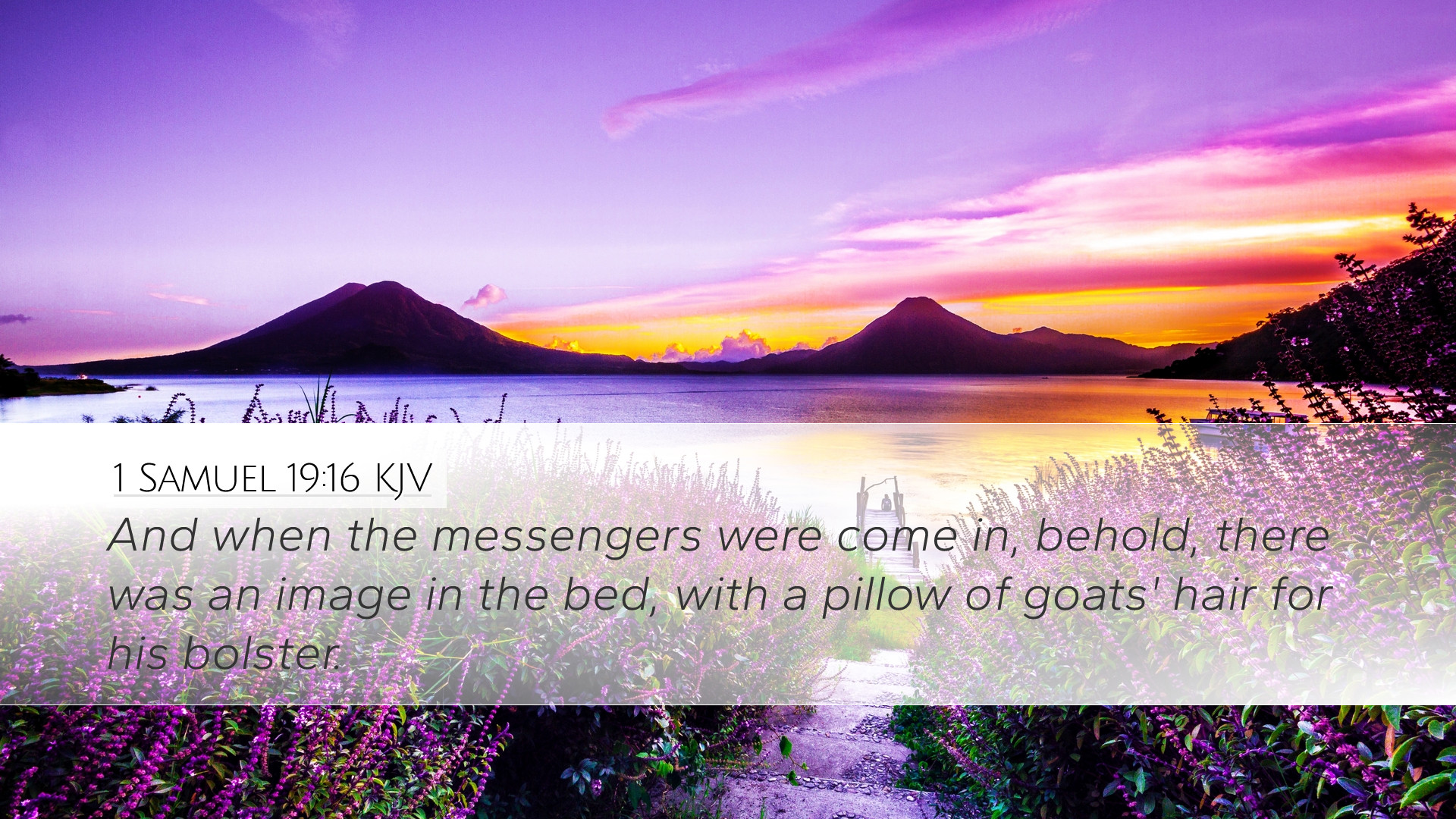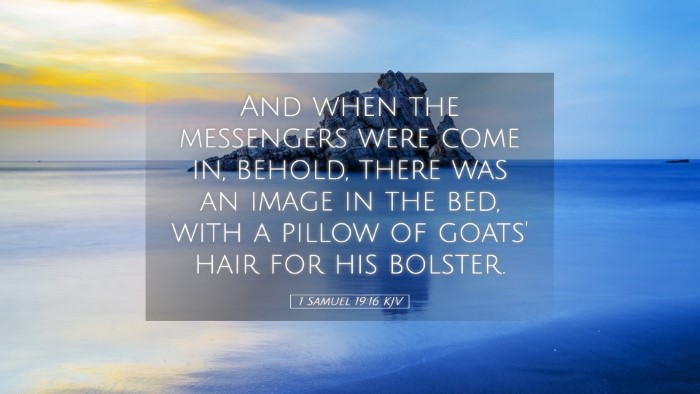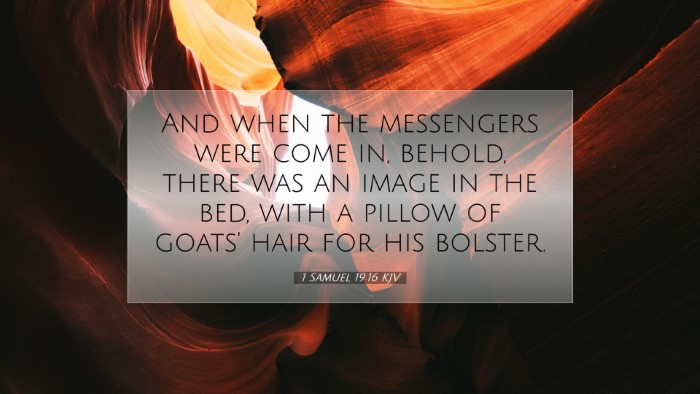Commentary on 1 Samuel 19:16
1 Samuel 19:16 presents a pivotal moment in the life of David, illustrating the intersection of divine sovereignty, human conflict, and the role of prophetic ministry. The verse states: "And when the messengers were come in, behold, there was an image in the house, with the quilt." (1 Samuel 19:16, KJV) This imagery is rich with theological significance, deserving of thorough exploration.
Contextual Overview
The context of this verse lies within a narrative that describes the escalating tension between King Saul and David, who has been anointed by God as the future king of Israel. This section of Samuel underscores themes of jealousy, the struggle for power, and divine protection, all of which are crucial for understanding the unfolding drama of Israel's monarchy.
Insights from Matthew Henry
According to Matthew Henry, the presence of an image in Michal's household serves as a pivotal element in the deception that facilitates David's escape from Saul's wrath. Henry notes that Michal, David’s wife and Saul’s daughter, displayed ingenuity in protecting her husband.
- Symbol of Deception: The image, which is often interpreted as a teraphim or household idol, signifies the lengths to which Michal went to shield David. Henry suggests that this act not only highlights familial loyalty but also raises questions about the spiritual state of Israel during this time.
- Domestic Tensions: Henry emphasizes the domestic aspects of the narrative, as the interactions between Michal and her father Saul illustrate broader themes of familial discord and betrayal, demonstrating the complexities of loyalty and allegiance during a politically tumultuous period.
Insights from Adam Clarke
Adam Clarke further elaborates on the significance of the image in his commentary. Clarke identifies the cultural implications of idol worship and its juxtaposition with the covenant relationship between God and His people.
- Idolatry and Allegiance: Clarke points out that the presence of an idol in the house echoes the prevailing idolatrous practices within Israel. He posits that Michal's action reflects a conflicted heart—caught between allegiance to her father and love for David. This tells us much about the personal stakes involved.
- Theological Ramifications: Clarke asserts that the introduction of an idol in a domestic setting highlights the spiritual decline of Israel, contrasting it with David’s emerging leadership which is characterized by devotion to the true God.
Insights from Albert Barnes
Albert Barnes offers a pointed analysis regarding the consequences of Saul's tyranny and David's fortuitous escape. Barnes notes that the narrative illustrates God's providence in terms of human actions and decisions.
- Divine Providence: Barnes argues that the verse encapsulates the broader theme of divine intervention. Although Saul attempts to eliminate David, it is God's will that ultimately prevails, directing Michal to aid David. This aspect is crucial for theologians and students alike in understanding the significance of divine sovereignty amidst human machinations.
- Human Agency: Barnes emphasizes Michal’s role in the narrative, symbolizing the sometimes unexpected agents of God’s providence in human affairs. In times of crisis, individuals can play significant roles in fulfilling God's purposes, reminding ministry students of their responsibilities as agents of change.
Thematic Reflections
The examination of 1 Samuel 19:16 invites deeper reflections on several pertinent themes:
- Loyalty and Betrayal: The interactions between Michal, Saul, and David highlight the intricate dynamics of loyalty within familial and political contexts. These themes resonate throughout scripture and challenge believers to consider their own allegiances.
- Divine Protection: The narrative underscores the assurance of God’s protection over David as the anointed king, serving as a reminder to believers of God's sovereignty and care amidst persecution.
- Role of Women in Scripture: Michal's actions counter the often male-centric narratives of kingship and leadership. Her cleverness and courage provide significant insight into the role of women in God's redemptive history.
Conclusion
1 Samuel 19:16 serves not only as a historical account but also as a rich tapestry of theological and ethical reflections. Through the lens of public domain commentaries, we witness the interplay of divine sovereignty, human conflict, and the emotive power of familial ties. As pastors, students, and scholars engage with this passage, they are called to consider their roles within the ongoing narrative of God’s people, reflecting on the complexities of loyalty, the reality of divine providence, and the profound implications of their faith in action.


